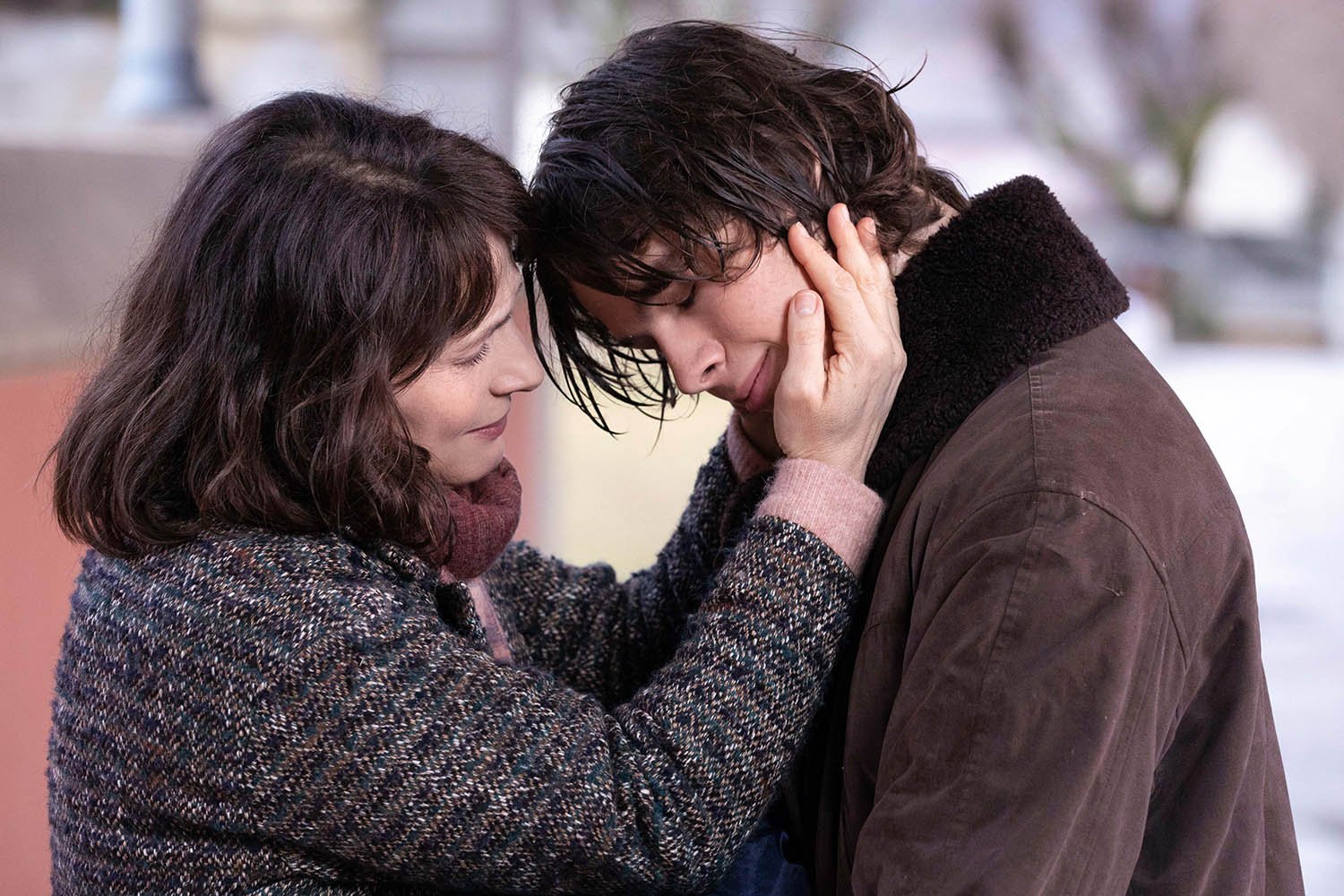Grief is by no means a universally relatable subject; we may all encounter it, but the manner in which we process it very rarely translates directly to somebody else’s personal experiences. This is something filmmaker Christophe Honoré has an innate awareness of, with his latest film Winter Boy attempting to address his own formative experience of grief without simply resorting to a semi-autobiographical work. So he doesn’t leave these still-raw emotions confined within a period setting, rendering that adolescent pain a distant memory. He’s attempting to address them via a contemporary coming-of-age tale––one that may share resemblances to his own youth but refuses to simply revisit it.
It’s an intriguing approach for the writer-director to take, and one that didn’t entirely work. Though many moments are keenly felt, especially whenever the sibling relationship takes center stage, there are just as many that lack an emotional specificity: in trying to make this story a character study of a modern teenager in the same situation, it feels like an emotional directness has been lost. Honoré has spoken about how he’s wished to make this film for years, never quite finding the courage to do so. By avoiding making this into a cinematic quasi-memoir, it seems he’s still hiding behind somebody else’s experience instead of confronting his own head-on.
Paul Kircher stars as Lucas, an openly gay 17-year-old we’re first introduced to undergoing some form of grief counseling, still unable to process the sudden, inexplicable loss of his father (played by Honoré himself, in a metatextual touch). He’s called back from boarding school to the family home, where his emotions stand in stark contrast to those of his mother (Juliette Binoche) and older brother (Vincent Lacoste, now something of a recurrent muse for the director), leading to a slow deterioration of the family unit. Binoche, playing a matriarch whose grief causes her to increasingly withdraw from the wider world, delivers a performance so underplayed it barely registers, especially when placed in comparison to the various shouting matches that take place as the wider family gather around the dinner table to mourn. In one of the better-observed moments, this includes a sudden political argument that emerges out of nowhere only to consume the conversation––grief getting overtaken by someone desperate to espouse their far-right views, a sight I’ve sadly had to witness firsthand at previous family gatherings.
Through his inability to process grief, Lucas starts withdrawing, skipping his father’s funeral and focusing more on the sexually intimate but emotionally distant relationship with his high school boyfriend. If there were bingo cards for European arthouse coming-of-age movies, their tryst would likely see you cross off several boxes, from the philosophical conversations that initiate the act to the general sight of a teenager puffing away at a cigarette directly before and after. It’s this stretch of narrative where Winter Boy feels its most clichéd, a particular shame considering the director’s prior ability to find something unique within well-trod thematic ground for a queer character study––especially in his 2018 effort Sorry Angel, whose depiction of living with AIDS felt comparatively irreverent to other stories set during that pandemic. Lucas doesn’t suggest a novel characterization so much as the typical angsty teen protagonist whose traumas have led him to withdraw and rebel in various ways; what should feel personal to the director winds up peddling various tropes of this particular genre.
These tropes largely remain in place for the second half, as Lucas joins his brother in Paris ahead of schedule and becomes infatuated with his gay roommate Lillo (Erwan Kepoa Fale), but the focus manages to shift back towards the family dynamic, at least for a while. Kircher and Lacoste have an easy-going screen chemistry as brothers, the elder sibling equally supportive and frustrated by the younger one, but even this relationship eventually gets sidelined for the more formulaic depiction of a rebellious teen in the big city trying to bed someone close to his brother, destroying all of their relationships in the process. It’s the stuff of many a teen drama––it plays like a storyline from Skins translated into French––and earns far more screentime than the exploration of how these family dynamics are transforming in the face of grief.
Ultimately, Winter Boy becomes too much of a broad, all-encompassing exploration of grief within a coming-of-age tale, ringing trite while it should be personal. It’s undeniably heartfelt, but the most moving moments are rooted within Lucas’ home life; in straying from this it feels uncomfortably generic.
Winter Boy arrives on MUBI on April 28.

